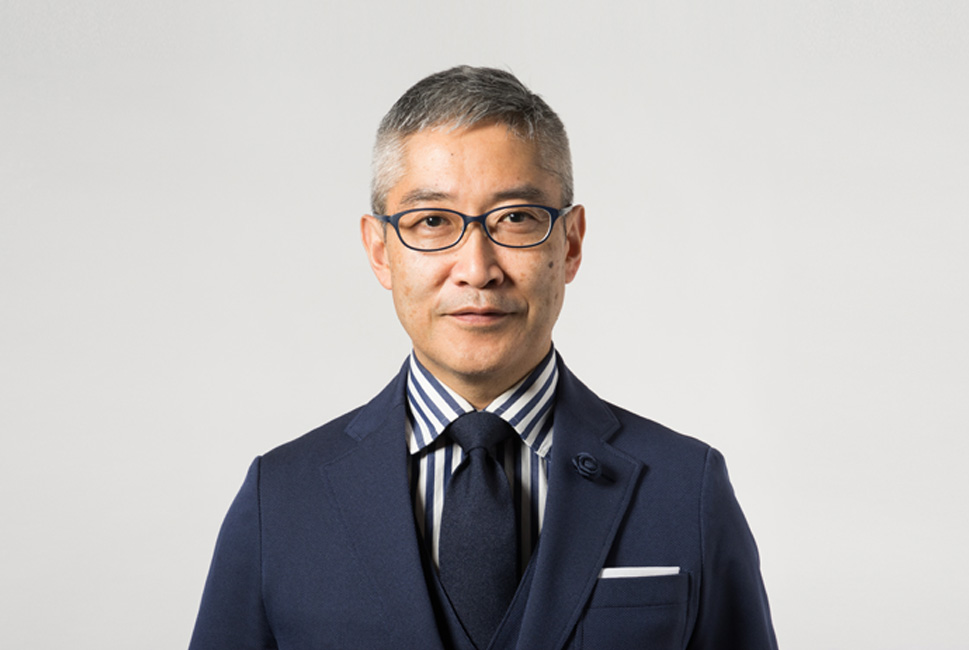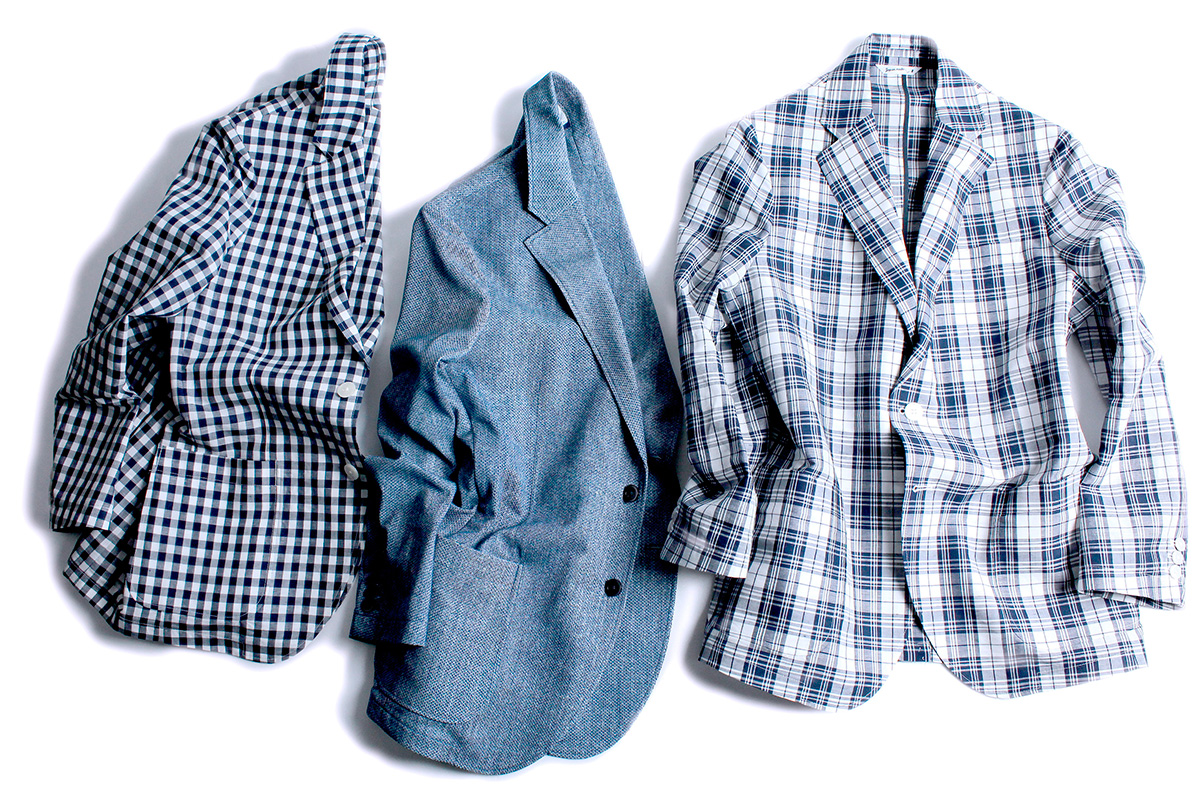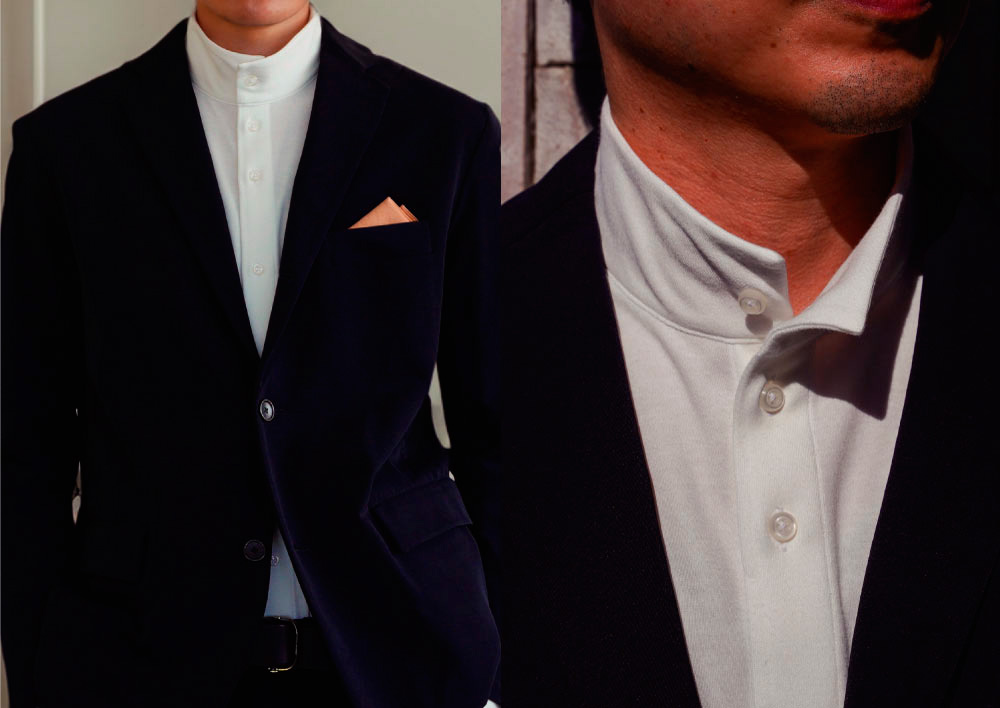In an insightful interview, Takao Yajima, Representative Director and President of Flex Japan Inc. shares the company's journey from shirt production to pioneering sustainable and emotionally resonant apparel. The discussion spans the evolution of Japanese fashion trends, the philosophy of "mottainai," and the innovative approach of yosetsugi in repurposing clothing. Yajima explores the challenges and successes of promoting sustainability in a consumer-based society, emphasizing the emotional stories behind each product. The interview concludes with Yajima's reflections on the essence of being human and the delicate balance between technological innovation and timeless human values.

Can you provide a brief overview of your company?
Flex Japan initially focused solely on producing shirts. However, in the year 2000, realizing the necessity to diversify our business, we embarked on new ventures. One notable outcome was the development of the JATTS Jacket, crafted from the same materials used for shirts. Although our original intent was to introduce a new type of shirt, we unexpectedly found success in creating a jacket that resonated well with the market. The positive reception of JATTS prompted us to expand our product line, leading to the development of various jacket styles.
Traditionally, shoulder-padded jackets, resembling the Italian style, were not mainstream in Japan. The prevailing preference leaned toward softer shoulders with minimal padding. Flex Japan stands out as one of the few companies actively promoting shoulder pads, thereby influencing a shift in the Japanese fashion trend.
Our company also played a pioneering role in the realm of women's shirts. Due to the existing abundance of women's apparel manufacturers, we hesitated to enter this competitive market. However, as women increasingly entered the workforce alongside men, a high demand emerged. Women expressed a desire to wear shirts similar to those designed for men. During my interview with a female journalist from a local Japanese media outlet, she said the same sentiment. Responding to this demand, we developed a diverse lineup of shirts for women, available in various sizes to cater to their preferences.
The key to crafting exceptional shirts lies in ensuring a perfect fit. With our meticulous attention to detail, we successfully carved out a new market for women's shirts in Japan.

JATTS Jacket
What is the brand for the women's shirt?
Our company uses various names, including those of OEMs. I believe we pioneered the concept of creating a ladies' version of the traditional men's dress shirt.
While Uniqlo enjoys global competitiveness, we acknowledge that our profitability doesn't match up to theirs. Uniqlo's strength on the global stage is largely attributed to Japan's strong textile industry, particularly in synthetic and functional materials. Companies like Toray that have led such material development have greatly supported retailers such as Uniqlo.
I don't know whether customers or retailers drove the transformation in the Japanese apparel industry. However, Japanese garment manufacturers are dedicated to meeting industrial standards. In contrast to Europeans who prioritize fashion trends, Japanese manufacturers meticulously adhere to precise measurements, particularly emphasizing symmetry. For instance, the right and left collars must be identical in size and angle.
However, this strict standardization has confined the Japanese apparel industry. It has its roots in Japan's post-WWII history when Western-style clothing became a commodity. It wasn't an inherent aspect of Japanese culture but rather a response to external influences. As these outfits were not initially worn for fashion but rather as commodities, attention was directed toward standardization and pricing. This emphasis on price competitiveness, high quality, and adherence to industrial standards has become an identifying point of the Japanese apparel industry, contributing to the strength of Japanese companies today.
Price competition can only be taken up to a certain point, as there will always be a newcomer who offers a lower price, particularly in the globalized market where developing nations provide increasingly price-competitive products. It has a strong impact on the survival of the company.
The Japanese market has a lot of concerns about the aging and declining population. In my opinion, Japanese society is overflowing with commodities. Despite a lack of salary increases over the past 30 years, Japanese society has found contentment in a life standardized around affordable commodities. As a result, people exhibit less responsiveness to material possessions.
Creating and imparting new value to products becomes significant, with a focus on providing emotional resonance and sympathy. There have been constant global conflicts, such as those in Ukraine and Gaza. While I can’t say who’s right and who’s wrong, human nature has not changed over the past years. Fostering empathetic emotions becomes essential in enhancing global happiness as we deal with the emergence of AI, and the potential development of AGI, which is an autonomous AI that would control the human aspect. As society evolves with new technologies, the persistent question revolves around how to enhance the overall happiness of people.
When we interviewed the president of TSI Holdings, Mr. Shimoji, he talked about utilizing new-age technologies to develop a unique and personalized store experience for customers, such as creating virtual avatars for customers to interact and offering the option to directly communicate with their favorite shop staff digitally. You also own direct stores. How are you leveraging these new-age technologies to create unique in-store experiences for your customers?
We are trying to utilize as many digital tools to provide a new customer experience, but as an SME, there is a limitation to what we can do. We believe that infusing sympathy into our products is important and striving toward sustainability. The apparel industry bears significant responsibility for sustainability concerns, and our primary focus is on material recycling by returning products to their original materials—an ideal recycling process.
Another strategy we are adopting is a made-to-order approach, exemplified by our Karuizawa shirts. This tailored approach minimizes excess production and is in line with our dedication to reducing environmental impact. Our broader goal is to shift consumer mindsets away from mass consumption, emphasizing the creation of durable products that endure over time.
Can you explain more about your philosophy of creating sympathy with your product? Does it mean valuing it more and getting the best use of it rather than a fast fashion item?
Our current emphasis lies on the remake business, where products are more than just items—they carry a profound story. One example is the remaking of a shirt worn by a deceased father or husband. By transforming it into a new product, individuals can wear and cherish it, remembering their loved ones. We are committed to perpetuating this emotional connection through our items, a sentiment that may align with the typical mindset of the Japanese.
In Japan, the concept of "mottainai" is deeply ingrained, promoting the avoidance of wasting what is valuable. Our emphasis on sympathy is rooted in the stories behind each product. In Japanese culture, everything in nature possesses a spirit or god that has been revered and honored for generations. This respect extends beyond living beings to objects that have been part of an area or a person's life—they are believed to carry a spirit. This tradition of treasuring objects is synonymous with respecting these spirits.
The best word to describe Japan is spiritual, not religious. People living in Japan are not aware of these traditions, but this spiritual concept exists. For instance, a deceased father or husband's childhood school uniform can be repurposed into a teddy bear, preserving the stories within. Families receiving such items often feel a sense of reunion with their departed loved ones. Additionally, transforming children's drawings into embroidered products or other items presents a wonderful way to create meaningful gifts for grandparents.
We have just started in Japan, with our station situated in Futaba-machi, Fukushima prefecture, home to the nuclear power plant. Futaba-machi is gaining global attention as a town for rejuvenation and recovery. Our base just opened in July and serves as a hub to showcase our products and send our message.
To promote our message through our products, we initiated a short novel or essay contest with the theme of reborn or remaking the products. An inspiring example from this initiative is the story of a father's shirt being transformed into his daughter's wedding gown. This gown, made in our atelier using surplus shirts, serves as a mockup, demonstrating our commitment to fulfilling families' dreams.
Through these projects and activities, we aim to communicate a profound message: that items can always be reborn for new purposes, emphasizing the importance of not throwing them away.
Conventional shirt production often results in excess cloth that must be discarded, but our shirts don't follow this norm. We draw inspiration from traditional Japanese culture, specifically from the art of kintsugi , where broken pottery pieces are meticulously rejoined with gold to breathe new life into them. What sets our approach apart is finished yosetsugi , a form of reassembly that goes beyond the ordinary kintsugi . While kintsugi typically reconnects pieces of the same kind of cracked bowl or porcelain, yosetsugi creatively assembles fragments from various porcelain items, making them into a singular piece.
This technique also embodies the principle of mottainai , where the addition of another piece on top and joining it creates a wholly new and revitalized piece of artwork.
It also employs the concept of mottainai, where the addition of another piece and joining it creates a wholly new and revitalized piece of artwork. The Japanese have long appreciated this form of renovation. Sometimes, people appreciate the joint part itself.
One of your shops, the Flex Japan store, is completely designed for renovation and repurposing. As a business, what are the challenges of convincing a consumer-based society that items can be reused and repurposed and that they can be just as good as new?
We approach our business from two key perspectives. First, by aligning our products with sustainability, renovation, and treasuring items, we aim to capture the attention of consumers who are increasingly mindful and less inclined to opt for new purchases. By associating our brand with these values, we hope to encourage consumers to intentionally choose our products and use our services to renovate their existing items.
In Japan, there's a prevailing notion that the country experienced a "lost 30 years," signaling a significant shift in mindset. The era of rapid economic growth emphasized mass consumption, production, and materialism as central to life. However, the current trend reflects a shift toward conceptual values and a less materialistic outlook. This evolving mindset is likely to persist, and we anticipate that the growing sympathy toward our company's values will attract consumers to our business.
The unexpected success of our recent essay and short story contest underscores this shift. Initially expecting around 100 applicants, we were shocked to receive 817 submitted stories. This exceptional response not only surprised us but also resonated within society, as short story contests typically do not attract such high levels of participation. The contest's success is attributed to the powerful concept of rebirth, rejuvenation, and recovery centered around Futaba-machi City, where we aimed to convey our message.
Considering your passion for spreading the message of reusing and repurposing old clothes, are you looking to partner up with local firms in overseas markets to expand the reach of your initiative and the message you are advocating?
Our priority is the domestic market, where we aim to foster collaborations and partnerships across various fields. Our teddy bear conversion contributes to grief work, which refers to supporting families and close kin through their mourning process. The grief work industry, which includes companies that provide funeral services and Buddhist altars, plays a crucial role in easing pain and fostering a subdued and calm life for those dealing with loss. Transforming the clothes of the deceased into teddy bears provides solace to their families, creating a sense that the departed has returned.
The teddy bear conversion isn't limited to those who have passed away; it extends to other significant life events. For instance, converting the clothes of a daughter leaving her family for marriage into a teddy bear serves as a heartfelt gift, alleviating feelings of loneliness for her parents. We see numerous applications for this service and aim to continue partnering with diverse companies in Japan.
As an apparel maker, innovation is integral to our business strategy. Recently, we introduced a versatile shirt that can function as both a turtleneck and a flat collar, allowing wearers to control body temperature around the neck. This addresses changing winter dress codes, especially for businessmen who no longer wear ties. Additionally, considering the aging society, the shirt caters to the senior generation's concern about neck wrinkles, providing a solution with a short turtleneck. While it's a new product with uncertain performance in the market, we are committed to continually launching innovative products.
Expanding overseas is very important for our business due to the diminishing Japanese market. We were among the early Japanese companies to establish operations in China, increasing our sales channels and providing valuable insights into global competition. Once competitors enter the Japanese market, we know how to compete with them. Finding the best local partner determines the success of our overseas business. We are grateful to our local partner in Bangladesh because our business there has been successful.

Turtleneck shirt
Are you currently looking for other partners that could help you overseas for marketing and distribution?
It depends.
With your variety of different brands, such as Techno Wave, Karuizawa Shirt, and Wrapneck Collared Shirt, is there a particular focus on one brand that you would like to push in the overseas market?
Recognizing and catering to local needs is key to our success. Our operations in Indonesia, for example, have been thriving. Through collaboration with a Japanese functional material provider, we successfully developed Techno Wave—a quick-dry material used in our shirts. For us to actively pursue the international market, we first need to discover our strengths and apply them to the demands of the local community.
Moving forward, are there any regions of interest to your firm that you would like to further expand into?
Our products are highly compatible with climates similar to Japan, characterized by high temperatures and humidity, making Southeast Asia a natural fit for our mainstream apparel products. However, we are still contemplating ways of expanding our apparel renovation business.
If we were to interview you on the last day of your Presidency, do you have a personal goal or ambition you would like to achieve?
The beginning of our remake business significantly shifted my perspective, prompting me to contemplate the future of humanity. As AI continues to advance, the emergence of AGI seems inevitable, raising questions about the role and value of human beings in a world potentially controlled by AI.
Sustainability is endangered because of human actions. With these thoughts, I've arrived at a personal realization—embracing and experiencing the essence of being human is meaningful and invaluable. I realized the importance of tangibly experiencing and expressing the goodness of being human, particularly through our business. While it might sound like an old cliché, I aspire to contribute by providing priceless value to a company.
In an increasingly high-tech world, I am intrigued by what aspects will remain uniquely human and what the true value of being human will be. This is a pursuit I want to keep exploring. The company has a dedicated department that is constantly integrating cutting-edge technologies into our operations. Achieving the right balance between these two pillars of our company, technological innovation and the timeless value of humanity, is a guiding principle that we aim to uphold.
0 COMMENTS